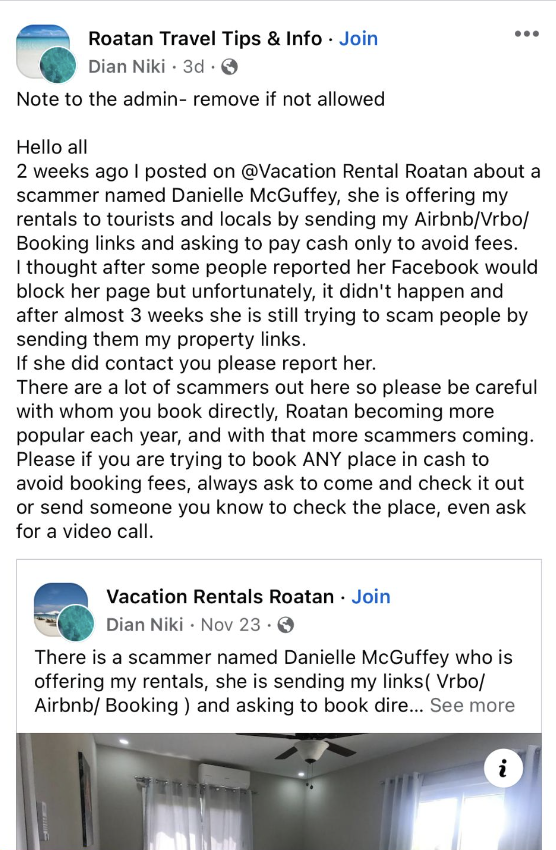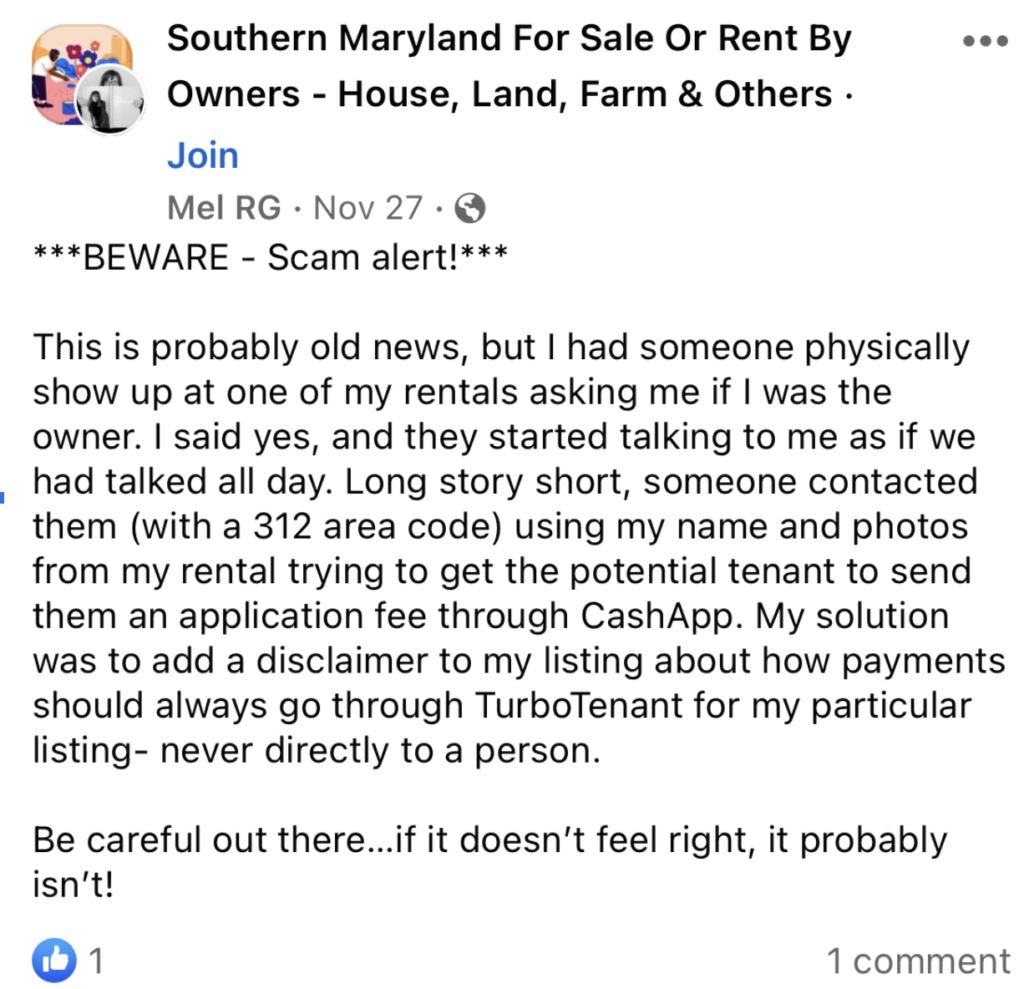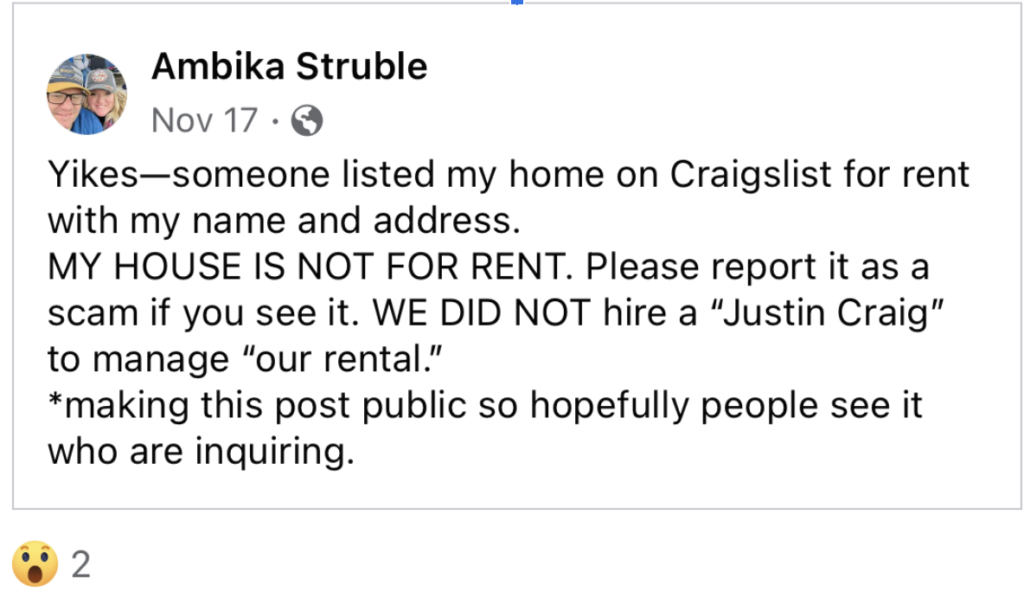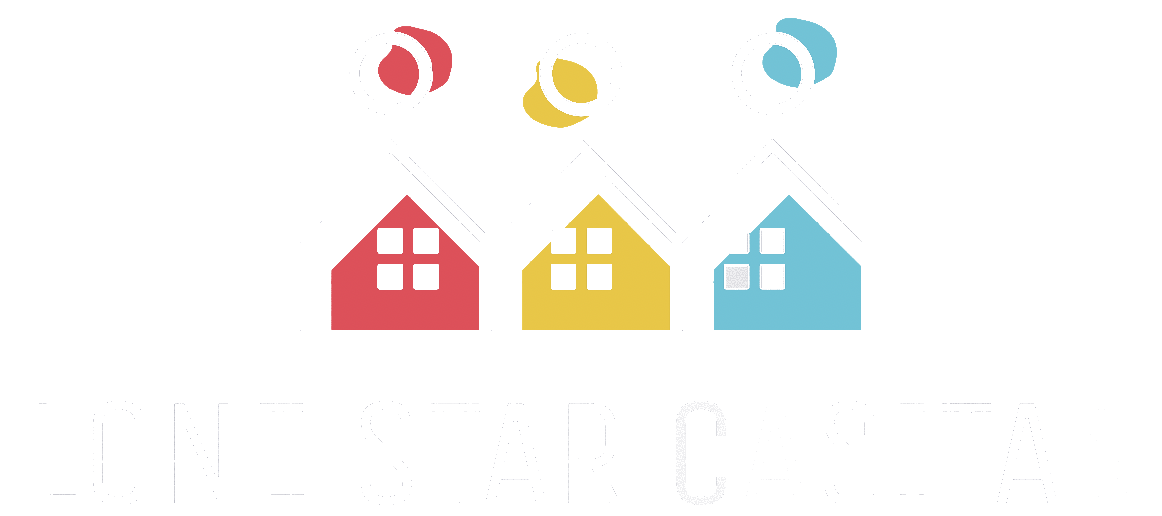
How to Avoid an Airbnb Scam
My name is Kourtney, and I’m a vacation rental host, and I’ve hosted over 3,000 guests in Texas beachfront properties. Every month I hear a new story about guests falling for the same Airbnb scam, so I wanted to share some easy tips with my guests so that they can stay safe.
Many of my guests book through Airbnb, VRBO, and Booking.com, and about half of my guests book through my direct booking website. As a vacation rental host, I know several things to look for that cannot be faked by a vacation rental listing scammer.
[ez-toc]
What is an Airbnb scam?
Airbnb has revolutionized the way we travel, offering unique accommodations around the world. However, its popularity has also attracted scammers looking to exploit unsuspecting guests.
Understanding the common types of scams on Airbnb is crucial for travelers to protect themselves and ensure a safe and enjoyable experience.
Fake Listings
One of the most prevalent type of Airbnb scam involves fake listings. Scammers create enticing, but nonexistent properties to lure guests.
These Airbnb scam listings often feature attractive photos (sometimes stolen from real listings or other websites) and are priced just below market rate to attract bookings.
Unsuspecting guests may book these properties, only to find out they don’t exist upon arrival, leaving them stranded and out of pocket.
Phishing Scams
Phishing is a deceptive practice where scammers trick guests into divulging personal information. This can occur through fake Airbnb scam websites or emails that look remarkably similar to the real ones.
Guests might be asked to log in, providing scammers with their account details, or to update payment information, leading to unauthorized charges or identity theft.
Overpayment and Fake Payment Platforms
In this Airbnb scam, a host may ask guests to pay outside the Airbnb platform, often claiming it will save money on fees. They might also send a fake invoice or payment link that leads to a fraudulent website.
Sometimes, scammers pretend to overpay and ask for the difference to be returned, only for the original payment to bounce or be revealed as fraudulent.
Bait-and-Switch Tactics
The bait-and-switch Airbnb scam occurs when guests book a property based on misleading information. Upon arrival, they find the accommodation vastly different from what was advertised, often inferior in quality or location.
Scammers use this tactic to offload less desirable properties or those they can’t rent out through legitimate means.
Last-Minute Cancellation Airbnb scam
Some scammers accept bookings and payments only to cancel at the last minute, leaving guests without accommodation.
They often use excuses like property damage or double booking. While Airbnb has policies to protect guests in such cases, the inconvenience and stress can significantly impact travel plans.
Avoid an Airbnb scam when booking over an OTA (Airbnb, VRBO, Booking.com, etc)
- Prefer Airbnb and verified listings on Booking.com:
In order to verify a listing, Booking.com sends each host a physical letter to the property address with a code the host enters in the website to verify the listing. This is not impossible to get around, but the letter takes a couple weeks to arrive, so a scammer would have to stalk the property’s mailbox.
Airbnb seems to take verification the most seriously of all the OTAs. For example, in 2022, Airbnb refused to let me list one of my new properties and threatened to shut down my hosting account until I sent several utility bills and the deed of trust proving ownership. Their AI and reverse image search had flagged the listing as a potential airbnb scam.
On Airbnb, payment to the host is not released until 24 hours after guest check-in, so even if a scam host were able to bypass these measures, if the guest arrived and could not check in, Airbnb would not release the payment to the scam host.
No other OTAs did any verification I am aware of on our new property listings.
- Recent on-platform reviews: There should be at least 2-3 reviews from the past 60 days on the platform you are renting from. If there are not recent verified reviews on Airbnb/VRBNO, I would generally advise staying away.
- Make all payments on-platform: These OTAs make it extremely easy for hosts to collect fees from guests and accommodate all payment methods. If a host is ever asking for payment outside the platform, run away. This is a clear read-flag because the host is looking for immediate payment which cannot be protected by the OTA.
- Ask the owner for local recommendations: The owner should know about local restaurants and things to do nearby with kids etc. If they are not responding or if it doesn’t sound like they know the area well, that’s a red flag.
What to look for when booking through a direct booking site / facebook ad / etc.
It’s true that travelers can save 18-25% off the total cost by booking directly and bypassing the OTA fees. IF you can direct book safely, it’s one of the easiest ways to travel more affordably. Here some tips and things to look for:
- Direct book for return trips:
Scenario: You’ve found a wonderful place on VRBO and you really want to book it. You are tempted to book directly because it will save you about $400. But, the direct booking site *might* be an Airbnb scam copy of the true listing.
If you have any doubts at all about the direct booking page, just book through the OTA for your first visit. When you leave, ask the host for their direct booking page, and feel 100% secure using that for your trip the following year. - Simply ask the host: In the scenario above, you can message the host securely through the trusted platform (VRBO, etc) as an inquiry: “Is this the same listing as your direct booking page at <theirdirectbookingwebsite>.com?”. As a host, when I get this question, I just reply “yes”.
Remember hosts on these platforms are not allowed to intentionally drive traffic off-platform, so don’t expect hosts to get overly verbose on this reply.
- Links from trusted sources: If the host has a direct booking website, search Google for the domain name of the site but exclude results from that site.
For example, my direct booking site is lonestarcasitas.com. So I would type into Google the following:
“lonestarcasitas.com” -site:lonestarcasitas.com
Look for links from trusted sources like the city webpage or tourism board website, for example. Visit the page to see why the link is there, but essentially you are looking for a trusted source to verify the host is legit. - Reverse image search: Use Google’s reverse image search to see if the photos are unique to the listing, or if they have been pulled from somewhere else. Be particularly suspicious if photos have been pulled off a MLS listing.
- Find the property on Google Maps Street view: Ask the owner for the address before you book, and confirm that it looks the same as the listing photos.
Most legit hosts don’t list the exact address in their public listings, so the property address is something that can be difficult (but not impossible) for a scammer to know.
- Reviews on 3rd-party sites that link to the host’s website: In the search from #2, you will hopefully find a Google Maps business listing or a Yelp page for the host.
You are looking for recent reviews AND that the business has been verified by the 3rd party AND that the business website matches the direct booking website you will be sending payment through. - Secure payment flow: Look for “Powered by Stripe” or similar artifacts on the checkout page to confirm you are sending your payment information through a secure page.
Confirm the page’s SSL certificate is current. Always check out through the website using a credit card with purchase / fraud protection.
NEVER EVER EVER send any payments through:- Cash app
- Venmo
- Zelle
- Moneygram
- Western Union
- Bitcoin
The above are the #1 way scammers get paid, by far.
- Do not book through Facebook / Craigslist or from an email: Most of the scams are here, and it is so easy to take a few photos from a legit listing and share them in a post to 200k+ people with a sketchy payment link.
Be very very cautious with these types of posts and make sure you get to a trusted website for the listing as quickly as possible.
Examples of fake listing scams from November 2023



Red Flags and Warning Signs of an Airbnb Scam
When booking a stay through Airbnb, it’s crucial to be aware of the red flags that might indicate a scam. Recognizing these warning signs can save you from potential fraud and ensure a safe and enjoyable travel experience.
Communication Outside Airbnb Platform
- Primary Red Flag: If a host insists on communicating or making transactions outside the Airbnb platform, it’s a significant warning sign. Airbnb’s secure messaging system is designed to protect both guests and hosts.
- Avoid Sharing Personal Information: Never share your email, phone number, or payment details outside the Airbnb system.
Prices That Seem Too Good to Be True
- Unrealistic Deals: Extremely low prices compared to similar listings in the area should raise suspicions. An Airbnb scam will often lure victims with attractive deals.
- Market Research: Always compare prices and amenities with other local listings to gauge what’s reasonable.
Pressure to Book Immediately
- Urgency Tactics: Be wary of hosts who pressure you to book quickly, claiming that the listing is in high demand. An Airbnb scam operator will often create a sense of urgency to rush you into making a decision.
- Take Your Time: A legitimate host will understand if you need time to think or have questions.
Lack of Reviews or Generic Reviews
- No Reviews: A listing without reviews or with very few reviews can be a red flag for an Airbnb scam, especially if the host claims they have hosted many guests.
- Quality of Reviews: Pay attention to the content of reviews. Generic, repetitive, or overly vague reviews might indicate that they are fabricated.
Inconsistencies in Listing Details
- Mismatched Information: Look out for inconsistencies in the listing’s photos, descriptions, and amenities. An Airbnb scam might use stock images or copy descriptions from other properties.
- Verify Location: Use tools like Google Maps to check the property’s location. Be cautious if the host is vague about the property’s exact address.
Requests for Off-Platform Payment
- Direct Payment Requests: Any requests for direct bank transfers, cash, or use of another payment service like PayPal should be treated with suspicion. Always make payments through Airbnb’s platform.
- Non-Refundable Deposits: Be cautious of hosts asking for non-refundable deposits or large sums of money upfront.
What to Do If You Encounter a Scam on Airbnb
If you suspect that you’ve encountered an Airbnb scam, taking swift and decisive action is crucial. Here’s what you should do:
Cease Communication with the Suspected Scammer
- Avoid Further Interaction: If you identify red flags indicating an Airbnb scam, stop all communication with the host immediately. Do not share any more personal information or proceed with any payments.
Report to Airbnb
- Use the Report Feature: Airbnb has a reporting feature on its platform. Use it to report the suspicious listing or message. Provide as much detail as possible, including screenshots of conversations, if applicable.
- Contact Airbnb Support: Reach out to Airbnb’s customer support for assistance. They can guide you through the next steps and investigate the Airbnb scam further.
Document Everything
- Keep Records: Save all communications, receipts, and any other relevant documentation related to the Airbnb scam. This information can be crucial for Airbnb’s investigation and any potential reimbursement processes.
Review Your Financial Transactions
- Check Your Accounts: If you made any payments, review your bank or credit card statements for unauthorized transactions. Contact your bank or credit card company to report any suspicious activity.
Spread Awareness
- Inform Others: Consider sharing your experience in relevant forums or social media groups to warn others about the scam. This can help prevent others from falling victim to the same Airbnb scam.
Legal Recourse
- Consider Legal Action: If you’ve suffered significant financial loss, you might want to consult with a legal professional to explore your options for recourse.
Encountering an Airbnb scam can be distressing, but by taking these steps, you can help protect yourself and assist Airbnb in preventing similar scams in the future. Remember, awareness and vigilance are key to ensuring a safe and enjoyable experience on the platform.
Frequently Asked Questions
What is the most common Airbnb scam to be aware of?
The most prevalent Airbnb scam involves fake listings or phishing attempts to steal personal information. Always verify listings and communicate through official channels.
How can I verify an Airbnb listing to avoid scams?
Check for recent, genuine reviews on the platform, ensure all communication and payments are made through Airbnb, and be wary of deals that seem too good to be true.
What are the red flags of a potential Airbnb scam?
Red flags include hosts asking for payment outside the Airbnb platform, listings with no reviews or overly generic reviews, and hosts who are unfamiliar with the local area.
Is it safe to book an Airbnb directly or through Facebook ads?
While direct booking can save money, it’s riskier. Always verify the legitimacy of direct booking sites and be cautious with listings advertised on Facebook or Craigslist.
How can I safely book a vacation rental directly?
For direct bookings, verify the host through trusted sources, use Google’s reverse image search for listing photos, and ensure secure payment methods are used.
What should I do if I encounter a suspicious Airbnb listing?
Report any suspicious listings or activities to Airbnb immediately. Avoid engaging with the host and do not share personal information.
Can I trust listings on platforms other than Airbnb, like VRBO or Booking.com?
While each platform has its verification process, always exercise caution. Booking.com, for instance, verifies listings by sending physical letters to hosts.
What payment methods should I avoid when booking a rental?
Never use payment methods like Cash App, Venmo, Zelle, WhatsApp, Moneygram, Western Union, or Bitcoin for booking rentals, as these are commonly used in an Airbnb scam.
How can I confirm the authenticity of a vacation rental host?
Ask the host for local recommendations and verify their responses. You can also contact them through the platform to confirm if their direct booking site is legitimate.
What steps should I take if I’ve been scammed on Airbnb?
Contact Airbnb support immediately, document all communications with the host, and consider contacting your bank or credit card company if you made an off-platform payment.
- Ultimate Guide: Memorable Things to Do After Prom (30 Ideas) - March 13, 2024
- How I Host Affordable Surfside Beach Family Vacations - January 2, 2024
- How to Avoid an Airbnb Scam - December 19, 2023






